
With Age Comes… Challenges, but Not Trials
The elderly are the biggest users of pharmaceutical products but make up only a small percentage of participants in clinical trials. The reason behind this is obvious: elderly patients are complicated, and deciphering a drug’s benefit-to-harm ratio in complicated patients is challenging. A key focus of Andrew McLachlan’s career is understanding the impact of aging on drug disposition and response to medicines. Today, he is Head of the University of Sydney School of Pharmacy, Dean of Pharmacy, and Program Director of Australia’s National Health and Medical Research Council’s (NHMRC) Centre for Research Excellence in Medicines and Ageing. He’s also a Member of the Order of Australia. We spoke with McLachlan to find out why the needs of the elderly are so often overlooked in drug development.
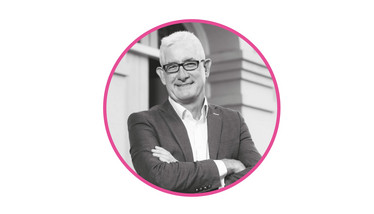
What are the difficulties in developing medicines suitable for elderly patients?
The elderly are very vulnerable when it comes to health conditions and often take multiple prescriptions for different indications. They are the biggest users of medicines and yet pharma development is not really adapted to their needs.
The current paradigm for drug development centers on healthy volunteers, and even when it comes to clinical trials in real patients, companies tend to recruit patients who are uncomplicated in terms of comorbidities. Elderly patients are likely to have a range of health issues – often of the cardiovascular system, musculoskeletal system, endocrinology issues and perhaps even mental health or neurological conditions – and are often excluded from clinical trials in favor of healthier, younger volunteers. How ironic that the very medicines brought to market as a result of these trials are not tested in the patients most likely to use them.
There can also be difficulties in designing dosage forms that are matched for elderly patients. Many elderly patients have swallowing difficulties, particularly with large tablets, but may also struggle to physically handle small tablets. Tablet design for the elderly is a whole other topic unto itself…
How does drug response vary between elderly patients and other patient groups?
Numerical age is not an indicator of biological age, and this can vary dramatically between patients. Most of us have probably met someone in their 80s who doesn’t look a day over 70! But there are also people in their 60s who look like they are in their 80s. Some of this comes down to the way a person has lived their life, and some of it comes down to genetics. There will also be huge differences in how people of the same age respond to a medicine, which makes testing difficult. A group of patients all of 80 years old may all require different dosages depending on the functionality of their organs. Research into aging biology is ongoing, but we do know that one of the major organs affected by aging is the liver, which is where we metabolize, process and eliminate many medicines. The immune system is also affected, and there are other aspects to consider too: old age often comes with nutrition issues and muscle loss. For these reasons and perhaps others, the elderly are more likely to experience adverse drug effects.
What does your research focus on?
Right now, there is a great deal we still don’t know about the pharmacology of older people. In an aging society, we’re all more likely to live longer than our parents or grandparents, and despite our improved health spans (periods of life marked by good health), the treatments available for the last months and years of our lives don’t always contribute to quality of life. Growing old is inevitable and it is imperative that we fill the gaps in our existing knowledge about the elderly.
One of my particular interests is in polypharmacy and deprescribing. How can we safely de-escalate or reduce the number of medicines a patient is taking to improve their health? It’s not about withdrawing treatment – although sometimes this is done upon request. When a patient is taking multiple medicines, we need to be aware that the balance between the benefits and harmful effects can change, particularly as patients age and become more susceptible to side effects.
For some older patients, there is no guarantee a medicine will work – and the WHO Global Patient Safety Challenge has flagged the need to prevent harmful effects of medicines as a priority. Polypharmacy has become the accepted solution to the management of multiple diseases but, in some cases, we lack a significant amount of information about drug-drug interactions. The burden of taking multiple medicines on a daily basis becomes particularly apparent in the elderly, who may suffer from various conditions and struggle to manage (and remember) their medication regime. Some patients may be taking more than ten medicines a day. As the older adult patient demographic is typically more susceptible to adverse drug events than other groups, this can lead to healthcare practitioners prescribing drugs to treat the side-effects of other drugs, in what is known as the prescribing cascade. When patients begin to take more drugs than is useful or necessary, noncompliance rears its ugly head and thus the negative cycle of wasteful drug prescription continues.
In some cases, deprescribing begins with the aim of making a patient more comfortable towards the end of their life but, for some patients, health outcomes or quality of life may actually increase with deprescribing. There is a great deal of research in this area. Studies have also shown that the cessation of antipsychotic drugs in Alzheimer’s patients has mortality benefits, for example.
What can pharma do to contribute?
There is a real lack of information from pharma companies about deprescribing and how to stop taking a medicine. The leaflet will contain a plethora of information covering clinical trials, dosing, how to start the medicines, how to increase the dose, and so on. But what about stopping a medicine? We never have complete information in this area. Can you just stop? Do you need to reduce the dose slowly? What about the possibility of adverse drug withdrawal reactions? What does the drug developer know? Because they will know something! We’re actually working with the TGA in Australia to add in a section to product information about safely ceasing medication.
What other action is needed to better understand elderly patients?
Elderly patients are very vulnerable and are arguably the patient population where we need the most information about a medicine’s safety and efficacy. Broader inclusion criteria in clinical trials that allow more elderly patients to take part would be of benefit. But from a financial perspective, bigger clinical trials result in larger costs. I strongly believe that pharmaceutical companies need to be remunerated for their investments because a viable and responsible pharmaceutical industry is essential for healthcare.
There is now an interesting array of tools at our disposal in the areas of modeling and simulation too, which could help improve understanding in terms of the pharmacokinetics of different dose concentrations and the responses in older people, ultimately helping pharma companies to better design drugs for the elderly. These types of technologies could also enable more personalization in the gerontology space. The current trend for personalization in the industry typically surrounds oncology in terms of targeting the right medicine to the right type of cancer, but we could make a huge impact on the elderly if we tailored therapies to them. And that might be as simple as providing a wider range of dosages.
Regulators also have a role to play. Drug development is influenced by regulators. Right now, it’s not as if the pharma industry is doing anything wrong, but there are few regulatory mandates regarding the elderly (although the FDA has been ramping up efforts to include more older adults in clinical trials). Greater focus on the elderly from regulators could drive change in the industry; for example, a wider variety of medicines for children are now available because of regulatory initiatives and regulations in the pediatric area.
Gathering Data
I’ve been working on the area of clinical pharmacology and older people for over a decade and led an Australian NHMRC Centre for Research Excellence in Medicines and Ageing for the last 5 years. Our research focuses on clinical pharmacology and pharmaco-epidemiology, investigating how medicines are used in older people and some of the patterns that can guide us on the optimal use of those medicines using real world data. There is a lot of data being gathered from clinical trials about older people but we wanted to take a new approach and generate our own, relevant to the Australian health system and implications for international health care. The center is also involved in training the workforce, which helps to raise awareness of the challenges of older people and medicines. I think it’s really important to encourage people to challenge traditional paradigms of medicine and drug development. Consequently, we’ve published many research papers in this area, a number of which were published as part of a supplement to Advanced Drug Delivery reviews in 2018, available at https://bit.ly/2UHcblU.
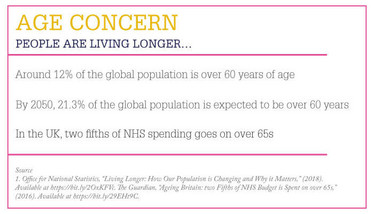
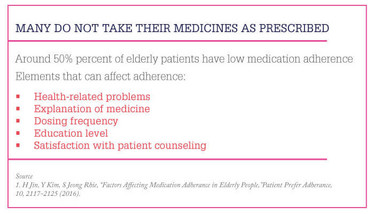
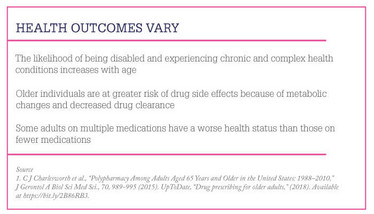
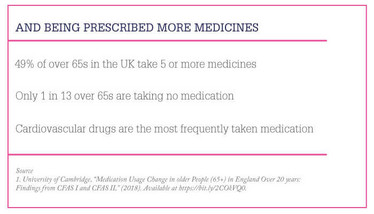
After finishing my degree, I envisioned a career in science communications. However, life took an unexpected turn and I ended up teaching abroad. Though the experience was amazing and I learned a great deal from it, I jumped at the opportunity to work for Texere. I'm excited to see where this new journey takes me!

Making great scientific magazines isn’t just about delivering knowledge and high quality content; it’s also about packaging these in the right words to ensure that someone is truly inspired by a topic. My passion is ensuring that our authors’ expertise is presented as a seamless and enjoyable reading experience, whether in print, in digital or on social media. I’ve spent fourteen years writing and editing features for scientific and manufacturing publications, and in making this content engaging and accessible without sacrificing its scientific integrity. There is nothing better than a magazine with great content that feels great to read.



















